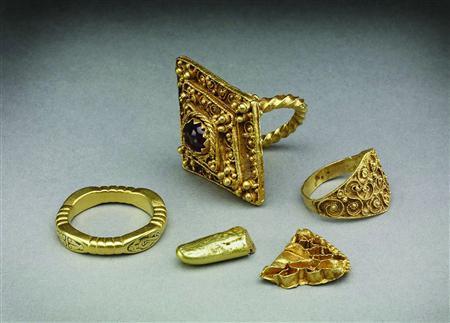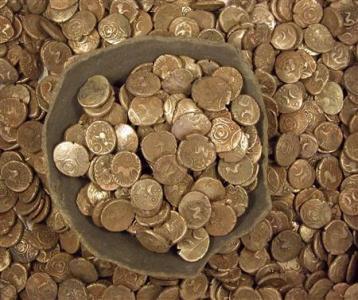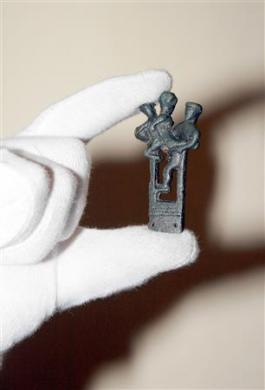Britain: An amateur treasure seeker's paradise
Stefano Ambrogi
Source - http://www.reuters.com/article/2011/05/25/us-britain-treasure-idUSTRE74O6KC20110525
Britain is bursting with ancient buried treasure and the masses have been bitten by the bug for digging it up -- ironically with the full approval of the government and leading museums.
Latest figures released by the British Museum on Wednesday showed a "massive" jump in the number of antiquities and spectacular objects classed as treasure being found by ordinary citizens with a passion for history.
In 2010, over 90,000 archaeological objects were reported to museums across the country -- a 36 percent rise on 2009 -- through what is known as the Portable Antiquities Scheme (PAS).
The scheme, which experts say is near enough unique to Britain, also allowed 859 separate items of treasure -- loosely defined as objects containing gold and silver, or hoards of ancient coins -- to be lawfully unearthed, a 10 percent increase on last year.
The process ultimately allows glittering objects, of at times enormous historical value, to be saved for the nation, instead of being secretly sold onto private collectors and the illegal antiquities market.

Early medieval gold objects including rings found in West Yorkshire, northern England in 2008. Credit Reuters.
The startling array of objects dug up from farmers fields, or found in one of the country's many rivers, range from prehistoric flints, Roman brooches, Anglo-Saxon strap-ends and medieval coins, right up to a set of post-medieval false teeth.
Highlights displayed at the British Museum include a stash of late Iron Age solid gold coins, called "staters," dating from 15 to 20 AD. The hoard of 840 coins, found by a metal detectorist in southeast England, is highly significant because it represents the largest hoard found in Britain since 1849.

A hoard of Iron Age gold coins found in Suffolk, southeast England in 2008. Credit Reuters
Of equal importance is a unique Roman knife handle depicting a perverted erotic scene involving two males and a female with one of the figures clutching a decapitated head. Only a handful of erotic knife handle designs have ever been found in Britain.

A Roman erotic knife handle, found in Lincolnshire, central England. Credit Reuters.
The PAS initiative begun in 1997, which culture minister Ed Vaizey told reporters is "the envy of the world," allows an army of metal detector users in England and Wales to dig for artifacts with the full backing of the law.
As long as the items aren't classed as "treasure" detector enthusiasts, derided by archaeologists in the past for their unscientific practices, are able to keep their haul once the objects are photographed and the find spot revealed.
Michael Lewis, deputy head of PAS, told Reuters the scheme differed markedly from the way in which excavation is regulated in the rest of Europe which he said was "draconian" by comparison. "Detecting is banned in most countries and you certainly can't keep what you find."
Neil MacGgregor, director of the British Museum, which manages the scheme said "what is truly exciting, is that these finds are being made by the public not (in most cases) by archaeologists, transforming the archaeological map of Britain."
Lauding the scheme Vaizey said: It really is incredibly effective...and it works."